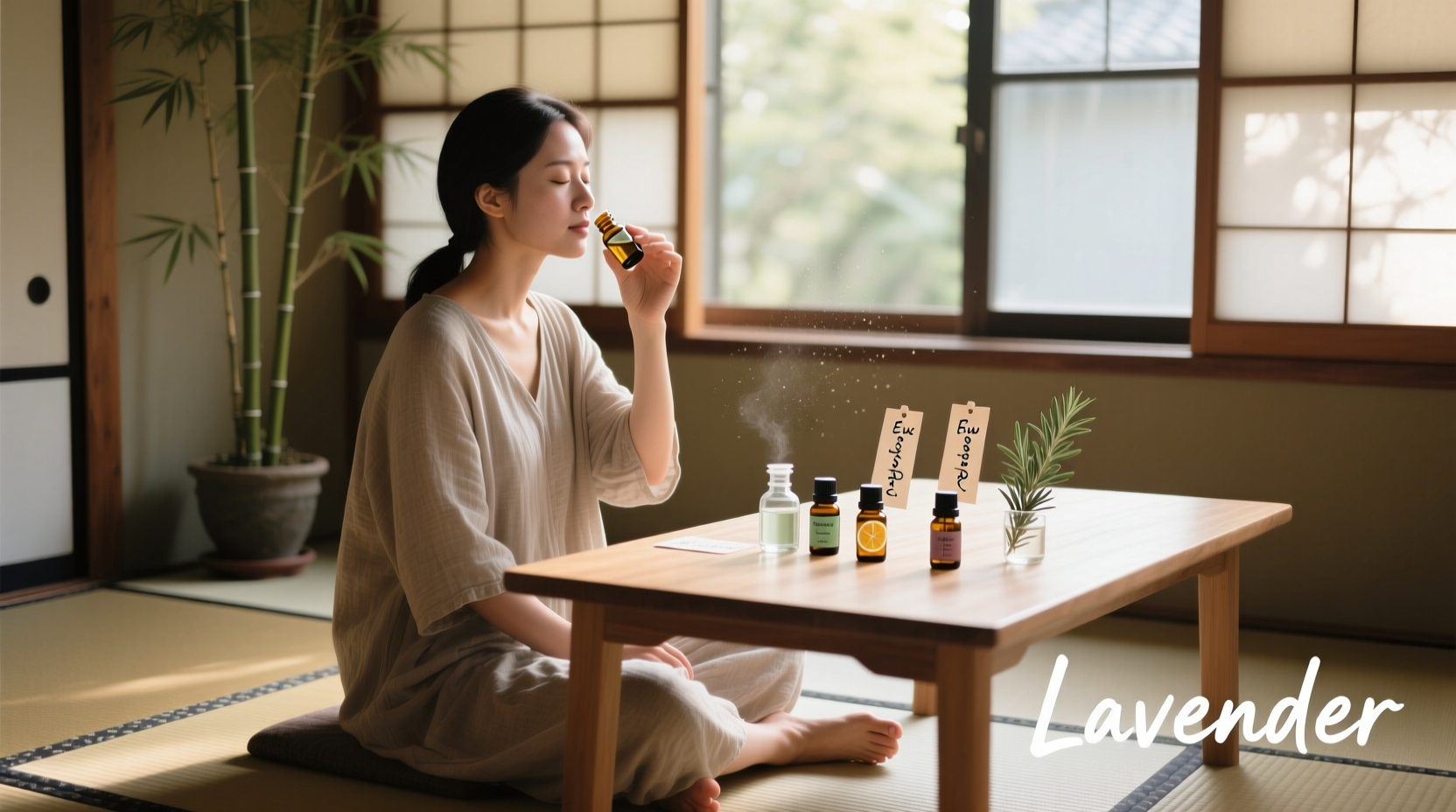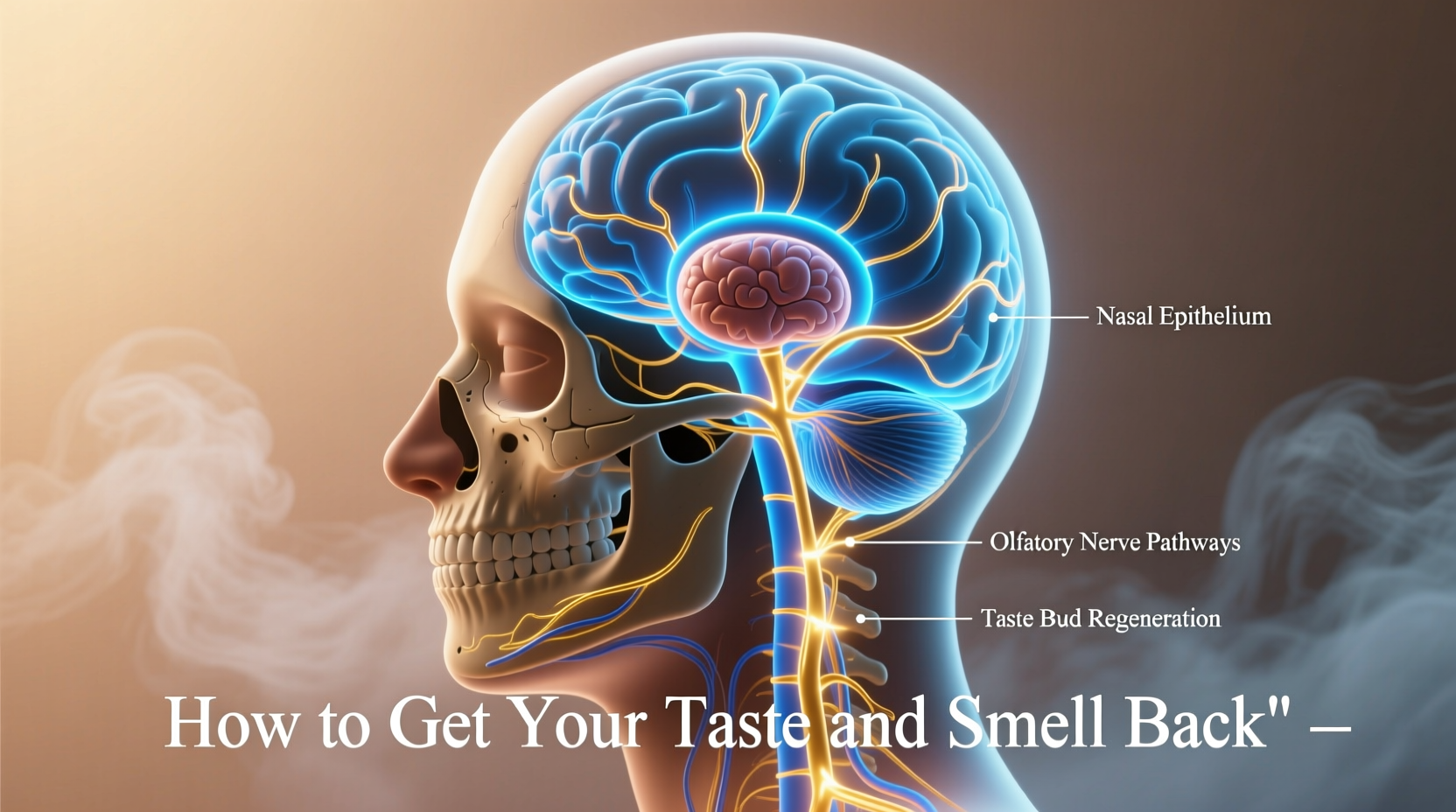Understanding Taste and Smell Loss: Causes and Realistic Expectations
When your sense of taste and smell suddenly disappears, it's understandably alarming. This condition, known as anosmia (loss of smell) and ageusia (loss of taste), most commonly occurs after viral infections like colds, flu, or COVID-19. According to the Centers for Disease Control and Prevention, approximately 86% of people who lose these senses during COVID-19 recover within 60 days.
Other potential causes include:
- Sinus infections and nasal congestion
- Allergies and nasal polyps
- Head injuries affecting olfactory nerves
- Neurological conditions
- Certain medications
| Cause of Loss | Typical Recovery Time | Recovery Rate |
|---|---|---|
| Viral infection (including COVID-19) | 2-8 weeks | 85-95% |
| Sinus infection/allergies | 1-4 weeks | 90-95% |
| Head injury | Variable (3-12+ months) | 30-50% |
| Neurological conditions | Variable | Depends on condition |
Immediate Actions to Take When You Lose Taste and Smell
When you first notice diminished senses, these evidence-based steps can support recovery:
Begin Smell Training Immediately
Also called olfactory training, this technique has the strongest scientific backing for recovery. A 2018 review in the Laryngoscope Investigative Otolaryngology journal found that consistent smell training significantly improved recovery rates.
How to perform smell training:
- Gather four distinct scents: lemon (citrus), rose (floral), clove (spicy), and eucalyptus (medicinal)
- Smell each scent for 20-30 seconds, twice daily
- Fully focus on trying to remember what the scent smelled like previously
- Continue for at least 3-6 months

Support Nasal Health
Nasal congestion often contributes to temporary loss. Try these approaches:
- Zinc-free saline nasal irrigation: Use a neti pot with distilled water twice daily
- Steam inhalation: Breathe steam from hot water (with optional non-menthol herbal additions) for 5-10 minutes
- Humidify your environment: Maintain 40-60% humidity in your home
Medical Treatments Worth Discussing With Your Doctor
While most cases resolve naturally, certain medical interventions may help specific situations:
When Steroids May Help
Short-term oral or nasal steroids can reduce inflammation in cases of recent onset (within 2 weeks) due to viral infection or sinus issues. According to Mayo Clinic specialists, steroid treatment shows most benefit when started early in the recovery process.
Nutritional Support
Maintain adequate nutrition to support nerve healing:
- Vitamin A: Essential for olfactory neuron health (found in sweet potatoes, carrots)
- Vitamin B12: Supports nerve function (found in fish, eggs, fortified cereals)
- Zinc: Important for taste bud function (found in pumpkin seeds, oysters) - but avoid high-dose supplements
Realistic Recovery Timeline Based on Cause
Your recovery path depends significantly on the underlying cause. Understanding this timeline helps manage expectations:
| Recovery Stage | Timeline | What to Expect |
|---|---|---|
| Initial loss | During active illness | Complete or partial loss of both senses |
| Early recovery | 1-4 weeks after illness | Distorted smells (parosmia), partial taste return |
| Middle recovery | 1-3 months | Gradual improvement in smell identification |
| Late recovery | 3-6 months | Near-complete recovery for most viral cases |
| Persistent symptoms | 6+ months | Consult ENT specialist for evaluation |
When to Seek Professional Medical Help
While patience is often the best medicine, certain warning signs warrant professional evaluation:
- No improvement after 4 weeks of consistent smell training
- Complete loss lasting more than 3 months
- Symptoms accompanied by facial pain, vision changes, or neurological symptoms
- Loss following head injury
- Progressive worsening rather than gradual improvement
An ear, nose, and throat (ENT) specialist can perform smell identification tests and determine if further investigation is needed. The American Academy of Otolaryngology recommends professional evaluation for symptoms persisting beyond 4 weeks.
Practical Tips for Daily Living During Recovery
While waiting for your senses to return, these strategies can improve your quality of life:
Food Preparation Adjustments
- Increase texture variety (crunchy, smooth, chewy) to enhance eating experience
- Use temperature contrasts (hot soup with cold dairy)
- Add visual appeal with colorful ingredients
- Focus on umami-rich foods which often retain some perception
Safety Considerations
Without smell, you lose important warning signals. Implement these safety measures:
- Install multiple smoke and carbon monoxide detectors
- Check food expiration dates carefully
- Ask family members to verify gas stove is off
- Use visual indicators for spoiled food (mold, discoloration)
Preventing Future Episodes
While not all causes are preventable, these strategies reduce risk:
- Practice good hand hygiene to prevent viral infections
- Manage allergies effectively with appropriate treatment
- Use protective headgear during sports with injury risk
- Stay current with vaccinations including flu and COVID-19
- Maintain overall good health through balanced nutrition
Frequently Asked Questions
How long does it typically take to regain taste and smell after COVID-19?
Most people recover their sense of taste and smell within 2-4 weeks after COVID-19 infection. According to CDC data, approximately 86% of affected individuals regain these senses within 60 days. Recovery may continue gradually for several months, with smell often returning before taste. Persistent loss beyond 6 months occurs in less than 5% of cases.
Is smell training really effective for recovering lost sense of smell?
Yes, multiple studies confirm smell training's effectiveness. Research published in Laryngoscope Investigative Otolaryngology shows that consistent daily smell training significantly improves recovery rates compared to no intervention. The technique works by stimulating neural pathways and promoting neuroplasticity in the olfactory system. For best results, practice twice daily with four distinct scents for at least 3-6 months.
Should I take zinc supplements to recover my sense of taste?
Zinc supplements are not recommended for smell and taste recovery. While zinc is important for taste bud function, high-dose supplements have not shown benefit for post-viral smell loss and may cause side effects. The American Academy of Otolaryngology advises against zinc supplements for this purpose. Instead, focus on zinc-rich foods like pumpkin seeds, oysters, and legumes, and consult your doctor before taking any supplements.
What's the difference between parosmia and phantosmia during recovery?
Parosmia is when familiar smells are perceived as unpleasant or distorted (like coffee smelling like sewage), while phantosmia is smelling odors that aren't actually present. Both are common during recovery from viral-induced smell loss and indicate that your olfactory system is healing. Parosmia typically appears 1-3 months into recovery and may last several months, while phantosmia involves 'ghost smells' that come and go. Both conditions usually resolve with time and consistent smell training.
When should I see a specialist about persistent loss of taste and smell?
Consult an ENT specialist if your symptoms persist beyond 4 weeks despite consistent smell training, or if you experience complete loss lasting more than 3 months. Also seek evaluation if you have additional symptoms like facial pain, vision changes, or neurological issues. The American Academy of Otolaryngology recommends professional assessment for symptoms lasting longer than one month to determine if underlying conditions require specific treatment.











 浙公网安备
33010002000092号
浙公网安备
33010002000092号 浙B2-20120091-4
浙B2-20120091-4